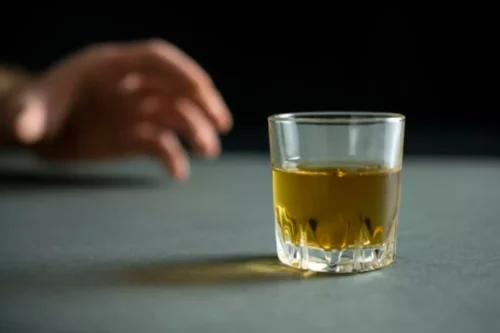
In addition, ongoing research is abundant in the area of neuroplasticity—the amazing ability of the brain to rewire following injury or disease—and its relationship to addiction recovery. Warren is a Licensed Master Social Worker, who specializes in substance abuse and mental health treatment. alcohol brain fog Clinically, Warren has developed a therapeutic skillset that utilizes a strengths-based perspective, Twelve Step philosophies, Cognitive Behavioral Therapy and Motivational Interviewing. There are a number of different supplements that can help improve cognitive function and brain health.
Between 12 and 24 Hours

Taking care of your mental health through therapy and support groups can also aid in the recovery process. With continued sobriety, you may begin to notice improvements in your cognitive function over time. It can take several months to a year for your brain to fully recover from the effects of alcohol. Seeking professional treatment and maintaining abstinence are crucial steps in the recovery process.
Join The Mental Health Community You’ve Been Dreaming Of
Finally, alcohol can also disrupt our natural sleep cycle and reduce our overall quality of sleep. Even though alcohol helps us fall asleep faster — thanks in large part to its depressive effect — we typically experience more sleep disturbances as the night goes on. Quality sleep is important for nearly every aspect of our health, including our metabolism, mood, and cognitive function (attention, learning, and memory). After only one night of poor sleep, our cognitive functions and performance start to decline. We might find ourselves in that brain fog state, forgetting things more often or having difficulty concentrating. Consuming alcohol actually amplifies this effect, contributing to feelings of drowsiness and relaxation.
- Brain fog recovery time can be impacted by the severity of alcohol abuse, mental health issues, and lifestyle habits.
- Exercise increases blood flow to the brain and promotes neuroplasticity.
- It’s found in a wide range of alcoholic beverages including beer, wine, and spirits like vodka, whiskey, rum, and gin.
- Especially if you’re feeling low and have learned that alcohol can numb or remove that pain, even if temporary, you’re more likely to go for it.
- Brain fog, or mental fog, is often described as feeling mentally drained and unable to concentrate.
- A study published in 2021 found that heavy drinking may lead to loss of brain volume.
Liver damage
These first few weeks are critical because they are when the risk of relapse is highest. However, try not to have too many firm expectations, as symptoms can continue for multiple weeks in some people. There is no exact timeline for alcohol withdrawal, and individual factors, such as the level of dependence on alcohol, will influence it. Alcohol withdrawal symptoms range from mild but annoying to severe and life-threatening. By 5 years, all other cognitive functions have returned to anormal level state. In virtually all cases, no matter how severely alcohol-dulled you feel now, a few years of abstinence willalmost completely reverse this cognitive damage.
If you want to learn more about brain fog and how to battle brain fog more effectively, check out these helpful articles and feel free to join this online community of mental health enthusiasts. It can lead to cognitive impairments such as memory loss, poor concentration, and difficulty with decision-making. If you think you abuse alcohol or someone you know may be struggling with alcohol addiction, it is essential to seek professional help as soon as possible.
- This can make it difficult to concentrate, remember names, or focus, and you may feel mentally fatigued.
- The precise symptoms of alcohol-related brain damage depend on a person’s overall health, how much they drink, and how well their liver functions, among other factors.
- Alcohol also decreases the effects of glutamate, which regulates dopamine in your brain’s reward center.
- Alcohol can act as a social lubricant and provide “liquid courage” for people who are anxious or shy, but do not rely on it too much.
- Pursuing cognitive behavioral therapy is one part of alcohol addiction treatment.
The material on this site is for informational purposes only, and is not a substitute for medical advice, diagnosis or treatment provided by a qualified health care provider. Brain fog from drinking can last for a few days after quitting, however this period of confusion and https://ecosoberhouse.com/ instability is only temporary. Take note that chronic alcohol misuse can also lead to other health problems, such as liver disease and heart disease. Alcohol abuse causes this type of damage by depleting the body of thiamine, which is an essential vitamin for the brain.
Mental Health Care
Even low levels of alcohol consumption can harm your health, and high levels have even worse effects. Read on to learn how alcohol affects the brain in the short- and long-term. Knowing why you’re experiencing brain fog is an important first step in understanding what may help relieve symptoms. If you’re unsure what could be causing your brain fog, consult with a healthcare provider for advice. Experts say the first approach to getting rid of brain fog includes looking at lifestyle factors such as nutrition, sleep, and exercise.

A Timeline for Cognitive Recovery after Abstinence

The reasons for such recommendations are many, but, by and large, they tend to stem from a study someone read about or saw reported in the news. Additional tips include listening to music, practicing mindfulness exercises, and focusing on the positive as much as possible. Plus, we’re always introducing new features to optimize your in-app experience.

